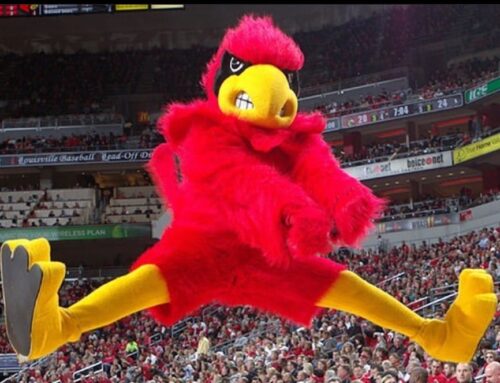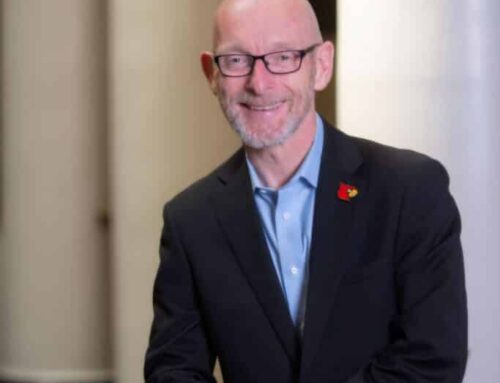By Eiman Zuberi–
U of L prides itself on promoting a diverse community and providing a culturally aware atmosphere. The Student Code of Conduct says U of L is “committed to tolerance, diversity and respect for differences.” It doesn’t seem out of the norm to hear about students protesting about what they feel needs to be changed.
There are different activist organizations around campus that focus on protesting a wide range of causes, including Fighting for Immigration Rights and Equality, Students for Justice in Palestine, the Cardinal Student/Farmworker Alliance and Cards United Against Sweatshops.
Senior Christian Brawner is an anthropology major and an Islamic and Middle Eastern studies minor. He is also part of the Louisville Students for Justice in Palestine. The group started five years ago by a group of American and Palestinian students. Although there is a national chapter, there are only five current members at U of L and they often rely on social media and other activist groups to provide numbers for action.
“This group was formed in an effort to educate the university and local community about the ongoing injustices Palestinians endure and have historically underwent,” Brawner said.
The team uses actions to emphasize their main intention: to counter mainstream media and U.S. institutional education that “ignores or misrepresents the Palestinians and their struggle for liberation.”
“We use a combination of actions, such as protests, flyering and chalking,” Brawner said.
Protests are non-violent, with big gatherings in highly visible areas and megaphones and fliers. The group also hosts educational events around campus such as Night For Palestine and Israel Apartheid Week.
“The purpose of this is to engage the community with this urgent crisis that is constantly ignored or dismissed,” Brawner said.
Brawner didn’t know much about the crisis or its historical context going into college. But now, he is a passionately involved member of the group as an officer and a main organizer. He has also met several Palestinian-American students and has seen first hand what the current situation is like for them.
He says one of his most memorable protests, which also gained the most attention due to its large size of 60 people, was for Operation Cast Lead. It was to protest an attack on Gaza, a Palestinian territory. Operation Cast Lead, also known as the Gaza Massacre, gained attention due to the attacks it led on hospitals and schools. Although the total number of fatalities is debated, it is believed over 1,000 civilians were killed in the attacks.
When asked why he protested, Brawner said, “the most important thing to give people is education.”
To him and his fellow activists, it is important for people to know that there is in fact a problem.
“People see our protests and then they Google it or look it up, so at least they have the sense that something is wrong,” he said.
And with protests comes the most negative side – the reactions of some passersbys.
“We get called slurs all the time,” Brawner said.
However, he doesn’t let that stop him. He often wonders why other people don’t get involved, knowing how much injustice is in the whole situation.
“I understand that people don’t understand activists, but on the flip side, I don’t understand why people don’t do anything. It’s a terrible situation that has been going on for a long time, and the USA has such a large involvement that it feels like an obligation,” Brawner said.
“Now I know too much. I went too far and now I can’t stop,” he said.
Photo by Sarah Rohleder / The Louisville Cardinal





